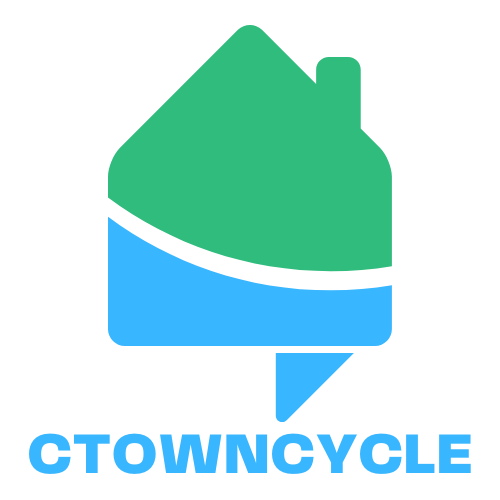Table of Contents
ToggleImagine living in a home where your mortgage payment is covered by someone else. Sounds like a dream, right? Welcome to the world of house hacking, where savvy homeowners turn their properties into money-making machines. This guide will show you how to navigate the ins and outs of sharing your space without losing your sanity—or your sense of humor.
What Is House Hacking?
House hacking involves homeowners generating income from their properties, which helps lower mortgage costs. The practice typically includes renting out part of a residence, such as a room or a unit in a multi-family building. Share arrangements often attract tenants, making it financially viable for homeowners.
Consider renting spare bedrooms to long-term tenants or utilizing platforms like Airbnb for short-term stays. Each approach offers distinct advantages in flexibility and income potential. Owners can select which method aligns best with their lifestyle and financial goals.
This strategy isn’t limited to single-family homes. Multi-family properties allow greater potential for revenue since multiple units can be rented simultaneously. Homeowners benefit from reduced living expenses while cultivating a sense of community with their tenants.
Many individuals find house hacking a strategic pathway towards building wealth. By applying rental income to mortgage payments, they accelerate equity growth. Over time, this practice can significantly ease financial burdens, promoting long-term stability.
Success in house hacking often stems from careful planning and management. Potential landlords must consider local regulations governing rentals and tenant rights. Establishing clear agreements sets expectations and creates a harmonious living environment.
House hacking serves as a practical solution for homeowners seeking additional income. It transforms living spaces into profitable assets, thereby enhancing overall financial health. With the right approach, individuals can thrive through informed and effective property management.
Benefits of House Hacking

House hacking offers numerous advantages for homeowners looking to optimize their living situation and finances. Both financial advantages and lifestyle benefits contribute to the appeal of this strategy.
Financial Advantages
Rental income significantly offsets mortgage expenses, making homeownership more affordable. Property owners often reduce their living costs by sharing space with tenants. This extra income can help cover various household expenses, including utilities and maintenance fees. Many homeowners report achieving faster equity growth as they pay down their mortgage while collecting rent, enhancing long-term wealth. Furthermore, tax deductions may apply to eligible expenses, providing additional financial relief during tax season.
Lifestyle Benefits
Sharing living spaces fosters a sense of community, making daily life more enjoyable and engaging. Tenants often assist homeowners with household chores, creating a mutually beneficial relationship. Homeowners gain flexibility in living arrangements, accommodating lifestyle changes such as remote work or travel. Social interactions with tenants can lead to lasting friendships, enriching overall living experiences. Many individuals appreciate the opportunity to expand their network while benefiting from reduced living costs.
How to House Hack
House hacking offers homeowners a strategic way to generate income while living in their property. Effective strategies include selecting the right property and finding ideal tenants.
Choosing the Right Property
Selecting the appropriate property significantly impacts house hacking success. Real estate investors often prefer multi-family units as they provide multiple rental opportunities. Vacant rooms or separate entrances enhance tenant privacy and comfort. Homeowners should also consider proximity to public transport and local amenities to attract renters. Properties in desirable neighborhoods tend to command higher rents, increasing profit margins. Evaluating zoning laws and local rental regulations ensures compliance while maximizing rental potential.
Finding Ideal Tenants
Identifying suitable tenants is vital for a successful house hack. Prospective landlords typically start by marketing their rental space online through platforms like Zillow or Craigslist. Providing clear and detailed descriptions along with attractive photos captures interest. Screening applicants through background checks, references, and income verification helps ensure reliability. Setting clear expectations about shared spaces and responsibilities prevents misunderstandings. Utilizing rental agreements outlines rights and obligations, promoting a positive living environment. Building rapport with tenants fosters good relationships, leading to smoother interactions and potential renewals.
Different House Hacking Strategies
House hacking offers various strategies to maximize income from living spaces. Understanding these approaches can help homeowners choose the best fit.
Renting a Room
Renting a room in a home is a popular strategy. This option allows homeowners to retain privacy while generating income. Long-term tenants often provide stable monthly revenue. Short-term rentals through platforms like Airbnb can increase income during peak travel seasons. Homeowners should consider their lifestyle when deciding on tenant arrangements. Creating a comfortable living area fosters positive tenant relationships. Setting clear rental terms and boundaries simplifies the experience for both parties. It’s essential to assess local laws and regulations regarding room rentals to ensure compliance.
Using a Duplex or Triplex
Utilizing a duplex or triplex presents an excellent opportunity for further income streams. These properties offer multiple units to rent, providing higher overall cash flow. Homeowners can live in one unit while renting the others, cultivating a diverse tenant base. This arrangement often leads to greater financial security and lower personal housing costs. Managing tenants becomes easier with separate entrances and designated spaces. Screening tenants carefully ensures reliable occupancy and reduces turnover risks. Owners must maintain property condition and address tenant concerns promptly. Greater attention to shared spaces enhances tenant satisfaction and retention.
Common Challenges in House Hacking
House hacking presents various challenges that homeowners must navigate to reap its benefits. Understanding these common obstacles helps ensure a smoother rental experience.
Managing Tenant Relationships
Building strong tenant relationships remains crucial for a successful house hacking journey. Consistent communication fosters trust and eases conflict resolution. Homeowners should establish clear guidelines when tenants move in to set expectations. Hosting a casual welcome event can promote a sense of community among residents. Addressing concerns promptly enhances tenant satisfaction, increasing the likelihood of lease renewals. Involving tenants in decisions that affect shared spaces cultivates cooperation. Homeowners benefit from understanding tenant needs, leading to a more enjoyable living environment for everyone involved.
Legal Considerations
Legal considerations play a significant role in successful house hacking. Understanding local zoning laws ensures compliance and prevents potential fines. Homeowners should also familiarize themselves with tenant rights to avoid disputes. Drafting comprehensive rental agreements protects both parties and clarifies expectations. Insurance coverage needs assessment is vital to safeguard property and liabilities. Tax implications of rental income might influence financial planning strategies, so keeping accurate records proves essential. Consulting a legal expert can provide additional clarity, helping homeowners manage complexities associated with renting.
House hacking stands out as a viable strategy for homeowners aiming to enhance their financial situation. By leveraging available space for rental income, individuals can significantly reduce their mortgage burden while fostering a sense of community in their living environment.
The flexibility of choosing between long-term tenants and short-term rentals allows for tailored income strategies that suit personal preferences and market conditions. With careful planning and effective tenant management, house hacking can lead to lasting financial benefits and a more enriching lifestyle.
Embracing this approach not only opens doors to wealth-building opportunities but also transforms properties into thriving living spaces that benefit both homeowners and tenants alike.




